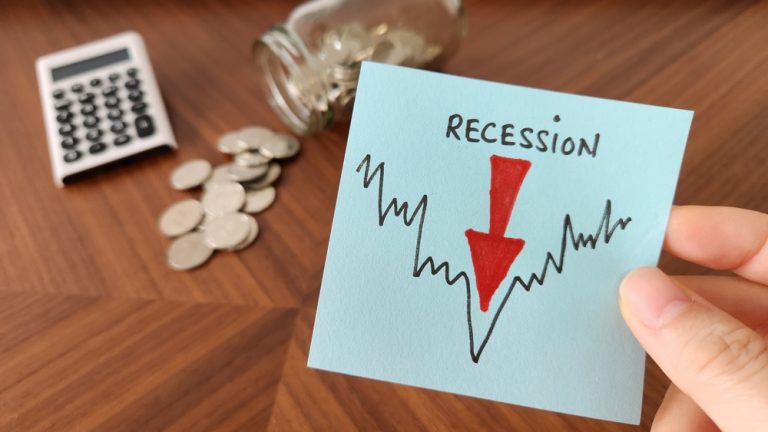Deutsche Bank survey highlights mounting concern over U.S. growth
The U.S. economy faces a nearly 50-50 chance of recession in the next 12 months, according to a new Deutsche Bank survey of 400 market participants. The average probability of a downturn was pegged at 43% during the March 17–20 survey window.
Despite strong labor markets and modest economic growth, the survey adds to a growing wave of sentiment data showing increased anxiety among consumers and businesses. Federal Reserve Chair Jerome Powell acknowledged these concerns last week but maintained that the economy remains “strong overall.”
Still, the Federal Reserve cut its 2025 GDP forecast to just 1.7% — the weakest projection since 2011, excluding the pandemic downturn. At the same time, the Fed raised its core inflation estimate to 2.8%, far above its 2% target, fueling concerns about a return of stagflation.
Market experts like Jeffrey Gundlach now see the recession risk at 50–60%. Morgan Stanley cited tariff uncertainty and its potential to spark stagflation as the key issue rattling investor confidence. “Growth is slowing while inflation remains sticky,” the firm said in a note.
While Powell downplayed fears of a 1980s-style stagnation, Barclays forecast growth at just 0.7% for the year — barely above recessionary territory. Adding to the concern, UCLA’s Anderson Forecast issued its first-ever “recession watch,” citing risks from President Trump’s escalating tariffs.
Economist Clement Bohr of UCLA warned that current trade policy could turn an avoidable slowdown into a deeper crisis: “If all your wishes come true, you could very well be the author of a deep recession. And it may not simply be a standard recession — but stagflation.”


